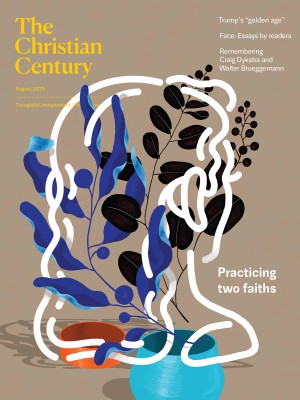August 24, Ordinary 21C (Jeremiah 1:4-10)
Sensing danger does not alone a prophet make.
I find it fascinating what biblical texts “become.” This passage from Jeremiah has long signaled the reluctant prophet motif, and that will provide my focus. But many today hear this passage in the context of modern debates concerning abortion. Conservative Protestants long regarded abortion as a difficult but not divisive issue. But antiabortion activists deployed this passage alongside Psalm 139:13 (“For it was you who formed my inward parts; you knit me together in my mother’s womb”) to advance a simple argument: If God was preparing biblical authors prior to their births, what would it mean had someone chosen to terminate those pregnancies? In the case of Jeremiah, would not the world have lost a prophet? Whatever our contemporary views concerning reproductive ethics, we can easily track the argument.
If we are honest with ourselves, we might acknowledge that we have developed the reluctant prophet motif into a template that shapes our imaginations concerning ministry and vocation. If I had a nickel for every seminarian who has told me how long they resisted their call to ministry, why, I’d have a lot of nickels.
Read our latest issue or browse back issues.
We do not know the precise origins of the reluctant prophet model. In canonical perspective, Moses provides the classic case. Moses encounters God in the burning bush, receives the call to confront Pharaoh and lead Israel out of Egypt, and responds, “Who am I” to do all that (Exod. 3:10–11)? Moses requires assurance after assurance, not least because “I am slow of speech and slow of tongue” (4:10). But to each objection God grants an accommodation. In diverse ways Moses’ reluctance continues throughout the Exodus story, yet eventually he brings his people to the edge of the promised land. A broad pattern involving divine call, prophetic reluctance, and divine assurance applies to Gideon (Judg. 6:11–40), Isaiah (6:1–13), and Jonah. Acts even presents Paul and Peter according to this model.
Jeremiah’s call is distinctive. God grants him an unusually wide scope of authority. The prophet not only speaks to Israel but is also appointed “over” nations and kingdoms. Although Paul will adapt this language to his ministry to the gentiles (Rom. 1:5, 11:13; Gal. 2:8)—the Greek word we translate as “gentiles” more commonly refers to nations—Jeremiah primarily speaks concerning Judah as it faces one threat after another and then, finally, calamity. His message, however, concerns a God who deals with Judah by using, blessing, and judging Babylon, the great empire of the moment.
The prophet’s ministry can be destructive, figured as plucking up, pulling down, destroying, and overthrowing. It can also be constructive, building and planting. We observe this in the prophet’s first two visions (1:11–19). Although God rules over all the nations, the primary focus involves Judah. A boiling pot tilts toward Jerusalem from the north. One is hard-pressed to imagine a more fitting image for Babylon’s all-consuming threat.
Many potential prophets sense that the boiling pot has already tipped. Western democracy, that vision of dignity for all people that once seemed so secure, sits quietly as waves of the boiling liquid bubble toward us. As with Judah, the decline has taken not months but decades. However, sensing danger does not alone a prophet make. A prophet is one who hears the call and responds. A prophet speaks. To a degree remarkable among the prophets, Jeremiah will bear Judah’s pain in his body as well as his heart. Potential prophets must weigh the implications of their call. This is why God instructs Jeremiah to gird up his loins and fortify his spirit (1:17).
The reluctant prophet motif can be powerful. Facing death threats during the Montgomery bus boycott, the young Martin Luther King Jr. experienced his kitchen-table moment. As Charles Marsh tells the story, King, unable to sleep, got out of bed and made himself some coffee. He recalled, “I felt myself faltering,” and “I was ready to give up.” He realized he needed the God his father had long proclaimed, a God perhaps rendered abstract by his advanced theological education and his careerism. So he prayed, opening himself to a mystical experience. He heard a voice saying, “Martin Luther, stand up for righteousness. Stand up for justice. Stand up for truth. And lo, I will be with you. Even until the end of the world.”
We may or may not experience God’s voice so directly. But if we are considering a call like Jeremiah’s, to tell the truth knowing the cost may be heavy, we may need the assurance King received. God does not promise to protect prophets from harm. God promises simply to stick with us.






